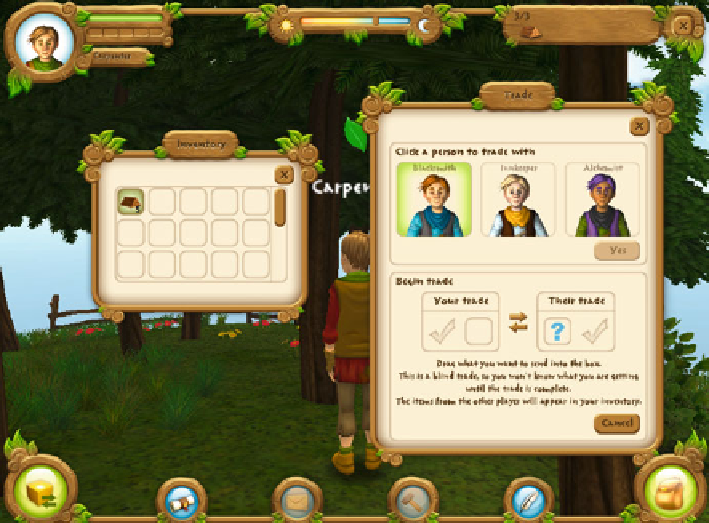Information Technology Reference
In-Depth Information
Fig. 21.2
The trading interface in Village Voices
of pedagogical approaches,
Village Voices
draws from social constructivism and
experiential learning theory (Kolb
1984
). Instead of explicitly instructing players
how to resolve particular conflicts, the game creates situations in which players are
pushed into conflicts with one another. Players therefore experience conflict from a
first-person perspective, and must use the affordances of the game to enact conflict
management strategies.
Crucial for learning experiences of this kind is access to learning facilitation.
While any individual play session is designed to last around 15 min in itself, it
is followed by a 10-15 min reflective debrief featuring the other players and a
learning instructor, thus a complete game experience takes around 30 min. During
the debrief, players are able to address the issues raised during the play session,
relate game experiences back to life experiences, reason through and advise one
another on alternative resolution strategies, and collectively negotiate rules to guide
future play sessions. Game sessions are intended to take place once or twice a week,
over a time period spanning approximately 6 weeks. It is important that the game is
played over a number of weeks, as opposed to in a block of back-to-back sessions, as
this gives players the opportunity to reflect on how their play behaviours evolve over
time. Furthermore, it enables players to identify parallels between conflict episodes
experienced in daily life, and the problem solving strategies employed in-game.
In terms of underlying conflict resolution philosophy,
Village Voices
draws on
Bodine and Crawford (
1998
) previously discussed six-phase model of resolving

Search WWH ::

Custom Search